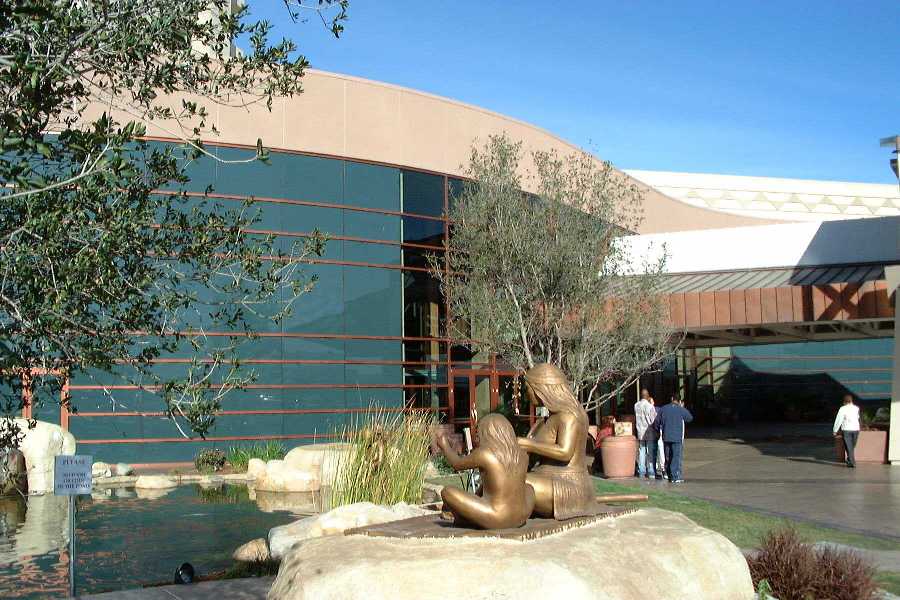 Another Stereotype of the Month entry:
Another Stereotype of the Month entry:
 Another Stereotype of the Month entry:
Another Stereotype of the Month entry:
Published on 2/21/2003
These are remarks I made on Feb. 7 in a workshop on casinos at the New England Press Association convention.
I mean no offense to those who support casino gambling, to members of recognized or unrecognized Indian tribes who seek to use the Indian Gaming Regulatory Act of 1988 to profit from casino gambling, nor to those working for corporations seeking to establish new casino franchises in New England.
But my position on casino gambling is unequivocal: It does not create wealth; rather, it is nothing more than a scheme for transferring wealth from the many to the few.
The public understands, and for the most part accepts that it transfers wealth from the many who play to the few who win. But those who are inclined to favor casinos do not understand a deeper problem:
Casinos transfer wealth from the many local businesses, cultural attractions, museums, restaurants and family venues to the few, mostly out-of-state interests that own and operate casinos.
Casinos thus remove money from the productive economies of many communities. But they cannot be defended on the ground that they put money into the economies of their host communities.
In Atlantic City, they drove out the middle class, and natives of southeastern Connecticut report that the only reason cars stop in the towns around Foxwoods and Mohegan Sun anymore is to ask for directions.
It may he debated whether casinos bring drugs, prostitution, organized crime and political corruption as their byproducts all of the time, most of the time, some of the time or not necessarily any of the time.
I am willing to accept the possibility that criminal activity isn't an inevitable byproduct of casinos. But with the possible exception of Las Vegas itself, which was empty desert before gambling came, no community that has accepted casino gambling that I know of is a better place to live and raise children than it was before.
If Massachusets or Rhode Island seriously entertains legalizing casinos, I therefore insist on one small point: that, in Massachusetts, the town must be Belmont, and, in Rhode Island, it must he East Greenwich. For Govs. Mitt Romney and Don Carcieri are busy men who, if they approve casino gambling, certainly ought to have the chance to go "gaming" without undue inconvenience!
Finally, seriously, the cruelest hoax of casinos is on the Indian. How easily Congress threw away the principle of equal protection when it undertook to bestow "Indian gaming" on Indians and the nation with the Indian Gaming Regulatory Act!
The delusion was that sacrificing a constitutional principle would benefit Indians.
But in the event, a few real Indians and some spurious ones have gotten rich, while most Indians continue to live as poorly as they did 50 years ago, and shall 50 years from now if we go on turning their potentially rich lands into gambling ghettos.
The cause of the Indian is as worthy as that of any group seeking its rights, and worthier than most. But without private property and genuine economic opportunity, real (as opposed to contrived-for-casinos) reservations are living hells that can best he understood by black or white Americans as like living one's lifetime knowing ones children are an active case in the files of the Department of Social Services, or of knowing one's legal residency is subject to challenge by the Immigration and Naturalization Service. Succinctly, the quality of life on Indian reservations today is what happens when the preamble to the Constitution, "We, the People," gets turned on its head, and the power to make or destroy is given over to government.
I therefore consider "Indian gaming" to be the tragic, mendacious, despicable assurance that the life of the average Indian will be no better in 2053 than it was in 1953.
Why, then, do we even consider bringing casinos to other New England states? The answer is simple: Government wants the revenue.
State and local tax collectors would gladly pass up meals taxes and sales taxes from real, economic-growth-producing enterprises if they could get their hands on a guaranteed revenue stream in exchange for agreeing to casinos.
As to legislators, they are positively apoplectic when they see a revenue stream going to tax collectors in other states.
Such legislators, tax collectors and private casino interests are not acting in the public interest. As citizens, as journalists, as enlightened public officials, we must be brave enough to oppose casinos until the economic truth about them be comes generally accepted — or until too many casinos in other states cause the revenue stream to the tax collector to dry up.
David A Mittell Jr. is a member of The Providence Journal's editorial board.

Rob's reply
>> But my position on casino gambling is unequivocal: It does not create wealth; rather, it is nothing more than a scheme for transferring wealth from the many to the few. <<
Your unequivocal position is unequivocally wrong. Most studies show casinos do create wealth—not only for the Indians who own them, but for the non-Indians who work at them. The only wealth being transferred is from the visitors who can afford to go to casinos to the Indians who run the casinos—which is generally how gaming works.
>> Casinos transfer wealth from the many local businesses, cultural attractions, museums, restaurants and family venues to the few, mostly out-of-state interests that own and operate casinos. <<
People don't understand this "deeper problem" because there's no evidence it exists. Why would a family choose between a "family venue" and a casino when casinos don't admit children? Has there ever been a case of someone torn between visiting a cultural attraction like a museum and an Indian casino? I'm gonna go out on a limb and guess the markets for these two kinds of attractions don't overlap.
>> no community that has accepted casino gambling that I know of is a better place to live and raise children than it was before. <<
You obviously don't know many communities. I don't recall a single Indian tribe's demanding the removal of its casino or claiming the casino has made the tribal community worse. And few if any Anglo communities have demanded the removal of the casinos near them either. Some have protested how casinos have "changed the character" of the place, but they haven't protested the jobs created.
>> How easily Congress threw away the principle of equal protection when it undertook to bestow "Indian gaming" on Indians and the nation with the Indian Gaming Regulatory Act! <<
Apparently you think the "equal protection" clause is supposed to protect people equally from gaming. Or something. Indian gaming doesn't violate any constitutional principles. And IGRA only created a legal framework for Indian gaming. High-stakes bingo and other forms of gaming were already happening on Indian lands.
>> But in the event, a few real Indians and some spurious ones have gotten rich, while most Indians continue to live as poorly as they did 50 years ago <<
Most Indians live too far from a city to make gaming work or choose not to pursue gaming for cultural reasons. Of those that have pursued gaming, most have enriched their tribes, not themselves. So yes, only a few Indians have gotten rich from gaming individually. Mittell is ironically correct, though not in the way he intended.
>> But without private property and genuine economic opportunity, real (as opposed to contrived-for-casinos) reservations are living hells <<
Gaming is a real economic opportunity, as the real economic results have proved. Moreover, it's creating other economic opportunities, just as Congress intended when it passed IGRA.
Indians can be deported?
>> can best he understood by black or white Americans as like living one's lifetime knowing ones children are an active case in the files of the Department of Social Services, or of knowing one's legal residency is subject to challenge by the Immigration and Naturalization Service. <<
Why would living on a reservation be like being a legal resident whose residency is subject to challenge? Indians are full-fledged American citizens as well as members of their tribes, and no one can easily challenge either status. People get disenrolled from tribes like they get stripped of their US citizenship: only rarely, and with just cause.
>> Succinctly, the quality of life on Indian reservations today is what happens when the preamble to the Constitution, "We, the People," gets turned on its head, and the power to make or destroy is given over to government. <<
Well, the American government did try to destroy the Indians, and did force them onto reservations. So, yes, the government is ultimately responsible for the Indians' plight. Again, Mittell is ironically correct in a way he probably didn't intend.
>> I therefore consider "Indian gaming" to be the tragic, mendacious, despicable assurance that the life of the average Indian will be no better in 2053 than it was in 1953. <<
Life is already much better for most gaming tribes. Life is somewhat better for non-gaming tribes also. Some are getting money directly from revenue-sharing agreements with gaming tribes. Some are reaping the benefits of scholarships, exhibits, and programs funded by gaming revenue. And the increasing prominence of gaming tribes has helped raise awareness of all Indians immeasurably.
There may be some Indian somewhere whose life has become worse because of gaming—maybe he's a gambling addict, or his wife got a job and left him. But the ratio of the Indians gaming has helped vs. the Indians it has hurt is probably something like 100 to 1.
Related links
The facts about Indian gaming
The essential facts about Indians today
|
. . . |

|
All material © copyright its original owners, except where noted.
Original text and pictures © copyright 2007 by Robert Schmidt.
Copyrighted material is posted under the Fair Use provision of the Copyright Act,
which allows copying for nonprofit educational uses including criticism and commentary.
Comments sent to the publisher become the property of Blue Corn Comics
and may be used in other postings without permission.